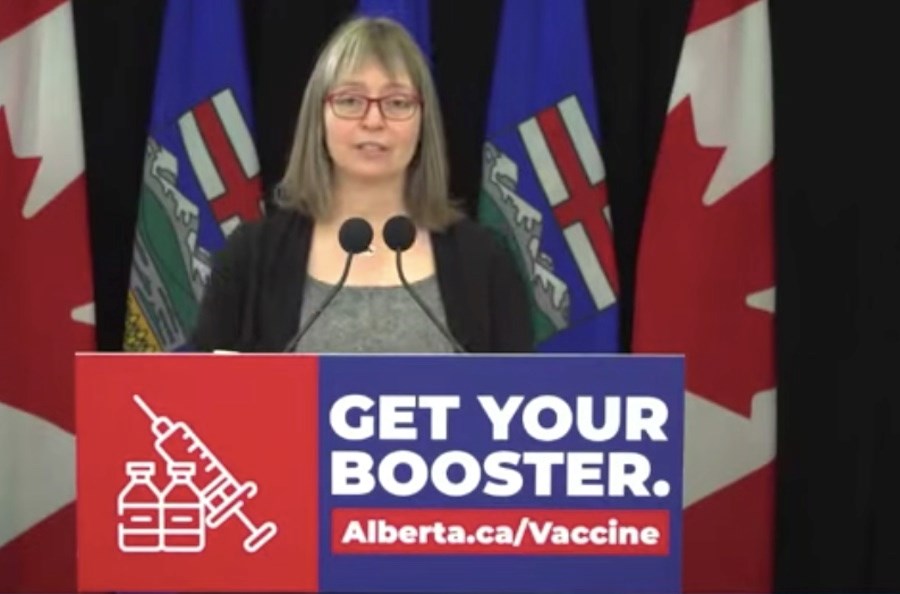Provincial data, reported Jan. 18, showed 1,089 people hospitalized with the COVID-19, with 104 people in ICU.
“On Sunday our hospitalizations surpassed 1,000 total for the first time since Oct. 14," said Alberta's chief medical officer of health, Dr. Deena Hinshaw, during a Jan. 18 COVID update.
“Even if we take into account the proportion of these that are admissions for other causes with an incidental COVID infection, the overall burden on the system is large and growing,” said Hinshaw, adding the most recent data from ICU showed 51 per cent of new admissions to non-ICU spaces were due to COVID infection, and 49 per cent were cases where the infection was not determined to be a cause of admission or it was not possible to determine.
For the ICU, the percentage of new admissions due to COVID was 74 per cent, and 26 per cent were incidental, unfit infections, or unclear.
“This is a different trend than what we have seen with the previous variants. And it is due to the much higher transmissibility of Omicron,” she said.
Hinshaw said the bottom line is that acute care in Alberta remains under serious pressure and COVID-19 continues to pose a risk of severe outcomes to many Albertans.
Altogether 3,412 people have died from the virus, to date.
The province reported 26,002 active cases in the Edmonton zone.
Province-wide active COVID cases were reported to be at 70,223.
Starting Jan. 20, Hinshaw announced the province would be offering a fourth dose of the COVID vaccine to those adults who are immunocompromised.
“Providing a fourth dose to these individuals is equivalent to a third dose for others," said Hinshaw. “There are approximately 80,000 immunocompromised Albertans who were eligible to get their third dose in September of 2021.”
Fourth doses are only recommended for immunocompromised adults with specific conditions, which are listed on the province’s website, five months after their third dose.
“Individuals with immunocompromising conditions may still have some risk, even with this fourth dose,” said Hinshaw.
On Jan. 17, Alberta's Health Minister Jason Copping posted on social media that he had tested positive for COVID on a rapid test.
Copping said he had mild symptoms last week and is now isolating at home.
“Please stay home if you have symptoms, and take a rapid test if you can,” he said.
He then urged anyone who hasn’t gotten vaccinated or a booster shot to consider doing so.
“Reports suggest fully vaccinated individuals are 19 times less likely to end up in the hospital with Omicron than unvaccinated individuals,” he said.
On Monday, Health Canada authorized Pfizer’s Paxlovid, an oral antiviral, to treat adults who have mild to moderate COVID-19 who are at a higher risk of progressing to serious disease.
The pills are prescribed by a doctor and can be taken at home. They are intended to be taken as soon as possible after a COVID diagnosis and within five days of the start of symptoms.
Paxlovid is the combination of the antiviral drugs nirmatrelvir and ritonavir. The former works by stopping the virus from replicating.
The treatment consists of two tablets of nirmatrelvir and one tablet of ritonavir taken together by mouth twice per day for five days.
During the announcement, Dr. Theresa Tam, Canada's chief public health officer, said there is limited global supply of Paxlovid.
Canada signed an agreement with Pfizer for an initial one million courses of the treatment in December.
The treatment will be deployed on a per-capita basis, and it will be up to provinces and territories to determine how best to manage the supply.
Tam emphasized the treatment is not a replacement for vaccination or public-health measures.




